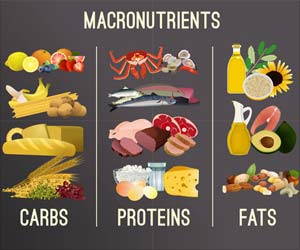FAQs:
1. How much water should I drink a day?
The recommended daily intake of water is 3 liters, or 100 ounces, for men, and 2.2 liters, or 77 ounces, for women.(16✔ ✔Trusted Source
How much water do we really need to drink?
Go to source).
2. How much water should I drink to lose weight?
Water intake itself may not assist in losing weight but if combined with restriction of calories then according to several studies, consuming 2 cups of water approximately 20 to 30 minutes before your meal makes you feel full and hence may help in weight loss(17✔ ✔Trusted Source
Water consumption increases weight loss during a hypocaloric diet intervention in middle-aged and older adults.
Go to source).
3. How much water should I drink based on my weight?
The average person needs to drink around half of their weight (in pounds) in ounces. For example, a 200-pound individual needs around 100 ounces (3000 ml) of water daily(18✔ ✔Trusted Source
The Hydration Equation: Update on Water Balance and Cognitive Performance.
Go to source).
4. What are the benefits of drinking the required amount of water?
The benefits of drinking the required amount of water include boosting energy and reducing tiredness, helping with hydration, flushing out toxins, improving skin texture, and maintaining stability(19✔ ✔Trusted Source
Water and Healthier Drinks
Go to source).
5. How much water should my child drink?
Children aged 1-3 require around 4 cups of liquid per day, which includes water or milk. This increases to about 5 cups for 4–8 year olds and 7-8 cups for older children(20✔ ✔Trusted Source
Beverage Consumption Patterns among Infants and Young Children (0⁻47.9 Months): Data from the Feeding Infants and Toddlers Study, 2016.
Go to source).
6. What percentage of our daily water comes from drinks or beverages other than water?
In a review of sixty-five studies from 2000 to 2013, it was noted that plain water contributed up to 58%, 75%, and 80% of the total beverage intake in children, adolescents, and adults, respectively.
Children consumed more milk, while adolescents had a higher intake of soft drinks. In contrast, adults tended to consume more tea, coffee, and alcoholic beverages(21✔ ✔Trusted Source
Fluid intake from beverages across age groups
Go to source).
7. Can excessive drinking of water be harmful?
Yes, excessive drinking of water over several days can be harmful and, in extreme situations, may lead to water intoxication, especially if someone drinks 10 to 15 liters of water a day for several days. However, this is unusual if kidney function is normal, as healthy kidneys can typically process a significant amount of water. Still, it's important to be aware of the risks of over-hydration(22✔ ✔Trusted Source
Water intoxication due to excessive water intake: observation of initiation stage
Go to source).
8. What are the symptoms and signs of water intoxication?
Water intoxication can cause vague symptoms like altered mental status, disorientation, confusion, nausea, and vomiting which may resemble psychosis(23✔ ✔Trusted Source
Water Toxicity
Go to source).
9. Can I form kidney stones if I don’t drink enough water or fluids?
Low water and overall fluid intake can lead to an increased risk of stone formation. Current guidelines recommend drinking enough fluids to produce at least 2.5 L of urine daily(24✔ ✔Trusted Source
Medical management of kidney stones: AUA guideline
Go to source).
10. How many bottles of water should you drink a day?
For women aiming for around 2.2 liters a day, that's about 4-5 bottles (16.9 ounces for each bottle).
Men targeting 3 liters can aim for 6 bottles per day.
Adjust based on personal factors like activity level and climate.
11. How to calculate the minimum daily water intake?
The general guideline for estimating daily minimum daily water intake is to multiply your body weight in kilograms by 0.03
For example, someone weighing 70 kilograms (Daily Water Intake=70×0.03=2.1 liters) should
aim for a minimum of around 2.1 liters of water per day as per the calculation. However, the average intake should be 3 liters for men and 2.2 liters for women.
Keep in mind that individual factors such as activity level and climate can influence hydration
needs(25✔ ✔Trusted Source
Total water intake by kilogram of body weight: Analysis of the Australian 2011 to 2013 National Nutrition and Physical Activity Survey
Go to source).
12. How many ounces of water are in a glass?
A standard glass contains 8 ounces, and one gallon equals sixteen glasses (each glass has 8
ounces) of water. For daily intake, the general guidelines recommend around 8 glasses or 64
ounces for water.
Ounces to liters conversion:
8 ounces of water is approximately 0.24 liters(26✔ ✔Trusted Source
"Drink at least eight glasses of water a day." Really? Is there scientific evidence for "8 x 8"?
Go to source).
13. How can I easily calculate my minimum daily water requirement?
Begin by noting your weight in pounds. Then, multiply your weight by 0.67 (⅔) to establish your minimum daily water requirement.
Formula: 0.67 x Weight in Pounds(27✔ ✔Trusted Source
How to Calculate How Much Water You Should Drink A Day
Go to source).
14. How should one modify their water intake based on their level of physical activity or exercise?
To adapt your water intake based on physical activity, add 12 ounces of water to your daily total for every 30 minutes of exercise. This adjustment compensates for water loss through sweat, ensuring proper hydration.(28✔ ✔Trusted Source
https://www.wku.edu/news/articles/index.php?view=article&articleid=2762&return=archive
Go to source).
15. How much water does an average person consume over different periods of their life, including monthly, annually, and over an average lifetime of 80 years?
An average human being drinks approximately:
- 90 liters (3,043.26 ounces) of water in a month,
- 1,095 liters (37,026.33 ounces) of water in a year, and
- 87,600 liters (2,962,106.4 ounces) of water in a lifetime, assuming an average lifespan of 80 years.
These calculations are based on an average daily water intake of about 3 liters (or approximately 101.44 ounces per day).
16. How much water do we need for daily for showering, bathing, Face and hand washing?
To estimate the amount of water used daily, monthly, and yearly for washing and bathing, let's use some average figures for common activities.
- Showering: On average, a shower uses about 10 liters (2.64 gallons) of water per minute. A 10-minute shower, therefore, uses 100 liters.
- Bathing: A full bathtub requires about 150 liters (39.6 gallons) of water
- Handwashing: It's estimated that washing hands uses about 1 liter (0.26 gallons) of water per wash, assuming the tap runs for approximately 20 seconds.
- Face and hand washing: Let's allocate 5 liters per day for miscellaneous washing.
Assuming one showers daily, the calculation would primarily focus on showering, with additional allowances for other forms of washing.
17. How much water do we need daily, monthly or yearly for washing and bathing?
Let's calculate the total daily, monthly, and yearly water usage for an average person's washing and bathing needs.
For washing and bathing, an average person uses approximately:
- Daily: 110 liters (3,719.54 ounces) of water
- Monthly: 3,300 liters (111,586.2 ounces) of water
- Yearly: 40,150 liters (1,357,632.1 ounces) of water
These estimates are based on daily showering and regular hand and face washing. The actual usage may vary depending on individual habits and the efficiency of water fixtures.
18. How much water can Elephant Drink?
While humans rely heavily on water for survival, the animal kingdom presents some fascinating extremes in water usage. One intriguing example is the elephant, which is among the largest consumers of water in the animal kingdom. An adult elephant can drink up to 200 liters (approximately 6,800 ounces) of water in a single day. This high consumption is necessary to support its massive size, dietary needs, and to maintain hydration in often hot habitats.
19. How much water does a camel need ?
when it comes to efficiency and minimal water use, the camel is an iconic example. Camels are renowned for their ability to go for days or even weeks without drinking water, thanks to their ability to conserve water and their bodies' efficient use of moisture from the food they eat. This adaptation is crucial for survival in the arid desert environments they often inhabit.


























Thank you